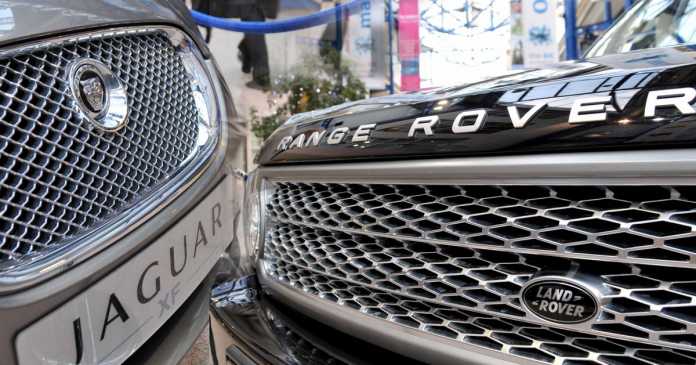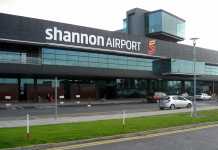
DRIVERLESS cars and significant job creation are key elements of the Jaguar Land Rover (JLR) company’s vision for its operation in Shannon.
That’s according to Paul Girr, chief engineer with the car manufacturer who are currently developing a 33,000sq ft workshop and 55,000sq ft office space that will form the base for their Irish operations.
“JLR is changing from being a UK focused manufacturing company to a worldwide research and development company, and Shannon is just one part of that.
“That’s because of the Information and Communications Technology (ICT) network in the Mid West and the companies that are already here who help create an ecosystem for us to collaborate in.”
These elements have been key to the 12-month growth and success of JLR since they moved to Shannon last year.
Opening with just 12 staff, JLR said in January that it would create 150 jobs at a new software development centre in Shannon and this week the firm’s chief engineer said that the office will have all of those jobs filled by the end of the summer.
Having ramped up its hiring plan, Mr Girr said that this is a tremendous advantage for the company and the investment it is putting into the region.
“We are on a pretty aggressive growth plan for the Shannon site and hopefully we can keep growing from there and we don’t plan to stop. There is no end of projects around that.”
He said that the Shannon site and its function within the company’s portfolio was focused on software development and autonomous driving with full connectivity to the car.
A core function of the Shannon operation is to develop the technology for smartphone users to immediately become connected to their cars.
“What happens now is that you can become disconnected from your device when you sit in to your car but we are developing ways to stay connected and Shannon is key to this development.
“We want to be at the forefront of testing for autonomous driving in Shannon and we have an initiative going on around Enterprise Ireland and the IDA together with other companies to make the Mid West a testing ground for this.”
Maintaining its reputation for safety through collaborations with top companies in the region, is something that is very important to the company.
“When we started this journey in Shannon we had 12 very skilled software engineers but we also told the story of the ecosystem and the partners that we had around. So this began to grow,” Mr Girr explained.
“Automotive is not about going out buying parts anymore. Automotive is about collaborations with other companies that allow us to bring in new talent and upskill that talent.
“A 55,000sq ft office facility will be ready by the start of next year and a 33,000sq ft high-class workshop will be used for specialist fitting of sensors for vehicles to test and extract data from the vehicles.
“The way we test vehicles is that we take a $200,000 vehicle and pull it apart. We hack all the wires and hook it up to a bunch of sensors and testers and start running our tests.
“That vehicle will never be put back together again and will be scrapped at the end of the process.
“It is a crying shame to see the vehicle at the end of the process, but it is absolutely crucial to proving that the software and systems in that vehicle are safe.
“If you have a four, five or six-year-old child at home now, in ten years time they might never have to do a driving test. That is how fast we are moving.
“They might always expect to go on their app, call a car, it might not be their car as it could be shared, but they would call a car that would pick them up and drop them off.
“They would have no issues around insurance, tax or the repair costs as they would be all built into the hire of the car – imagine if that was all done through that connected element of an app.
Mr Girr said that the technological advances pioneered in Shannon had been enhanced by links to the local third level colleges such as the artificial intelligence masters courses at the University of Limerick.
“The collaborations we’ve had with the universities and heads of departments have been hugely positive in the development of suitable programmes and courses to fulfil the talent needs.
“They were looking for course feedback and we are very willing to give that and help develop the courses,” he explained.
Mr Girr said that the excellent software engineers that have emerged from third level colleges including LIT and UL, “have been very complimentary into building an organisation from 12 people last year to almost 90 on-site now with a line of sight to 150 by the end of the summer.
Looking further down the line, he said that car manufacturer wanted to look at introducing the apprenticeship schemes that are operational in the UK.
“We bring in a huge number of apprentices every year and they are anything from three to five years depending on the area they get in to but we would be looking to skill them up through software development.
“I would like to see apprentices come through a similar scheme and push them on to potentially become the chief executive of JLR,” he declared.
Paul Girr was speaking in Dromoland Castle at the Skillnet Mid West seminar on innovative ways to attract and retain talent.
Read how driverless cars in the Jaguar Land Rover plant are advancing here.










